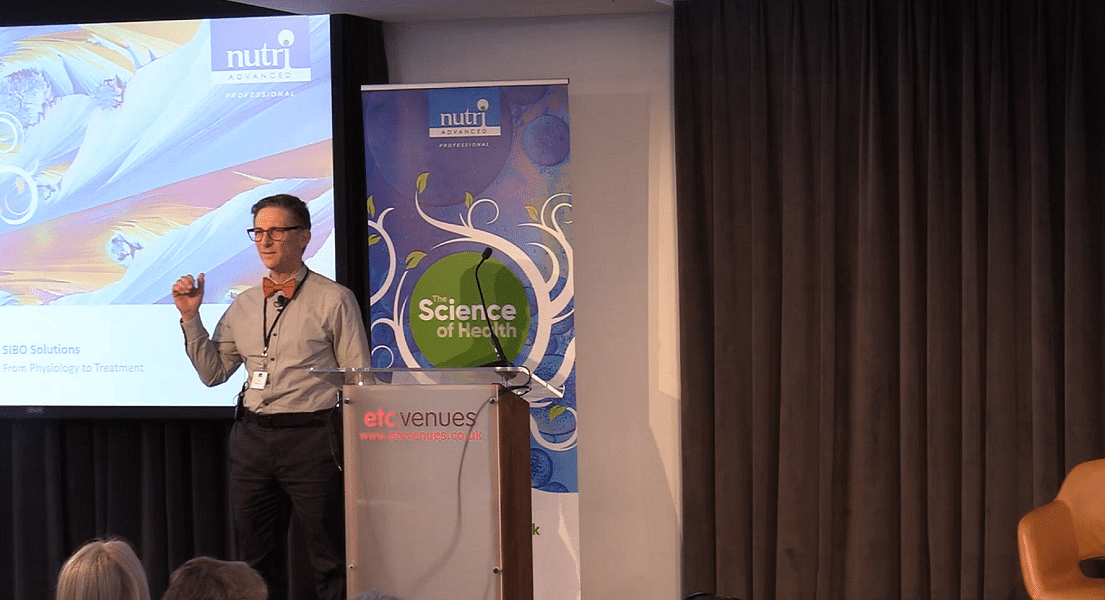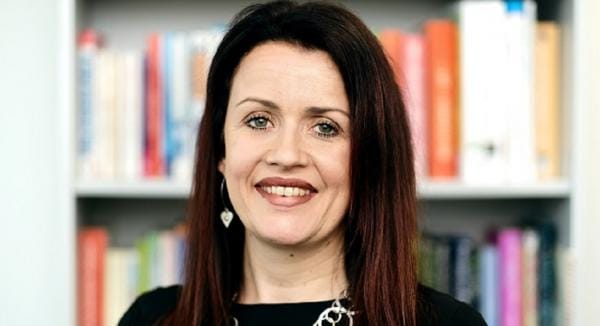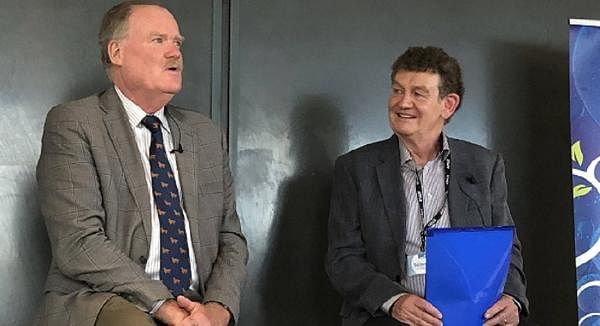Taking a Moment to Pause with Dr Steven Sandberg-Lewis
Why you can trust Nutri Advanced Every article on our site is researched thoroughly by our team of highly qualified nutritionists. Find out more about our editorial process.
In a fast-paced world where we are bombarded with information, it can be easy to become disconnected from the things that truly matter, even as a healthcare practitioner. And when time is short, it’s often the most important daily habits that fall to the way side.
Gretchen Rubin, best-selling author of The Happiness Project writes, “what you do every day matters more than what you do every once in a while”, and this is so true.
Dr Steven Sandberg-Lewis is a world-leading pioneer in functional gastroenterology. We were privileged to hear him talk recently at our annual functional medicine conference, The Science of Health. And we were further honoured to also share a few minutes to have an informal chat about his home and work life.
In this interview, we are given a wonderful insight into just how connected Dr Sandberg-Lewis is to the things that truly matter and how his daily habits are carefully and simply crafted to nurture his own health and wellbeing. It’s from this authentic space that we can do our best work as healthcare practitioners.
Not only do we get a glimpse of how Dr Sandberg-Lewis lives his own life; he also shares many invaluable clinical pearls, his hopes for the future of healthcare and some brilliant advice for newly qualified practitioners.
Thank you Dr Sandberg-Lewis for the inspiration, your time and the insightful words of wisdom.
RB: Ever since reading Hal Elrod’s The Miracle Morning, I’ve been much more aware of the value of a morning routine, especially for setting the tone of your work day.
Could you please share with us a brief outline of your morning routine on a typical work day?
SS-L: On waking, I drink filtered water that is not stored in plastic and then most days I start with one of the following:
- Practice yoga for 20 minutes followed by a brief meditation or
- Swim laps and walk against the current in water up to my waist for 45 minutes or
- Drink non-dairy chai or coffee while writing and researching on Pubmed
After that I shower, finishing with 15 seconds of cold rinse and eat breakfast if I am seeing patients that day. I have a brief mindfulness practice of diaphragmatic breathing while thinking of 2 things for which I am grateful before I eat.
On the 4 days a week when I do not work with patients I will start eating at noon or 1 PM.
RB: Could you name a single person who has had the biggest influence on your career?
SS-L: Lawrence Kaufman, LMT – My structural integration teacher and student of Ida Rolf, PhD
RB: What’s the most important healthcare book on your bookshelf? (apart from your own of course!)
SS-L: Roger Morrison’s Guide to Keynotes and Confirmatory Symptoms
RB: What tools do you use in clinic to measure client progress? Testing? Questionnaires?
SS-L:
Labwork-
Stool calprotectin
Serum transaminases, Fasting insulin, HbA1c,
Complete blood count, Neutrophilic hypersegmentation index
Salivary cortisol and DHEA
Physical exam-
Gait cycle
Tone of palatal rise with and without phonation
Digital (fingertip) temperature and palmar moisture
General appearance and vitality
Functional markers-
Organ specific muscle testing
Hiatal hernia syndrome testing
Respiratory diaphragm testing
Ileocecal valve testing
RB: How do you support patients with dietary recommendations that are often very challenging for them to implement?
SS-L: Most of my patients are extremely motivated, having been ill for some time and having consulted many other practitioners without getting well. They generally follow the diets well, as long as I choose the right one for them and their individual needs. The most common diets I use for vegans and vegetarians are the Monash FODMAP diet, the Bi-Phasic Diet or the Cedars-Sinai low fermentation diet. For omnivores I usually recommend the Specific Carbohydrate Diet, the SIBO Foodguide, the Fast Tract Diet or either of the ones mentioned above for vegan/vegetarians.
RB: What strategies do you use / recommend to support stress reduction in practice?
SS-L:
Heal the brain with neurofeedback and other psychophysiology modalities
Breath training
Sleep hygiene
Mindfulness especially prior to meals
Walking, yoga, water walking and other types of movement
Hormone balancing including cortisol/DHEA
RB: What do you enjoy doing when you’re not working?
SS-L: Writing, walking, biking, swimming, doing things with my spouse of 41 years
RB: What are your hopes for the future of the way gastrointestinal health is supported in the conventional healthcare system?
SS-L: Although I appreciate co-managing patients with certain standard medicine gastroenterologists, I have little hope for the current system except that more will adopt and study what we are doing or choose to co-manage patients with nutritionists, naturopathic physicians and functional medicine practitioners.
RB: What advice would you give to a newly qualified practitioner just learning about SIBO (Small Intestinal Bacterial Overgrowth) for the first time and perhaps feeling overwhelmed by the complexity of it?
SS-L: Take a bite at a time. There are many 45-60 minute interviews with multiple SIBO practitioners on the SIBO SOS series. This is marketed for the intellectually curious patient, so it is technical but couched in less technical language and is a nice way to slowly build your network of knowledge. Chapter 6 of my textbook, Functional Gastroenterology is a thorough overview of the subject co-written by Allison Siebecker, ND. You can read that a bit at a time so as not to feel overwhelmed.
About Dr Steven Sandberg Lewis ND DHANP:
Dr Steven Sandberg-Lewis, ND, DHANP is a practitioner of naturopathic gastroenterology. He has been in practice for 40 years and in 1996, he joined the full-time faculty of the National University of Natural Medicine (NUNM) in Portland, Oregon. Now adjunct faculty, he continues to engage in patient care 3 days per week and is a key professor in the Gastroenterology Block Course and teaches several electives including Gastroenterology Laboratory, Advanced Gastroenterology and The Liver in Health and Disease. Dr Sandberg-Lewis supervises the Gastroenterology Mentor Shift, giving student doctors the chance to work with complex digestive disorders in an off-campus small practice setting.
Areas of special clinical and research focus include irritable bowel syndrome, SIBO, GERD, hiatal hernia, inflammatory bowel disease (including microscopic colitis), biliary dyskinesia, the sterolbiome, gastroparesis and chronic nausea/vomiting.
Dr Sandberg-Lewis is a renowned presenter at educational seminars around the U.S. and beyond. He has authored or co-authored multiple articles, webinars and is frequently interviewed on digestive health topics. He has a regular column entitled ‘Functional Gastroenterology Bolus’ in the Townsend Letter.
The Science of Health featuring Dr Steven Sandberg-Lewis, Dr Jeffrey Bland, Jo Gamble & Amanda Hamilton is now available to buy as a high quality recording.
This website and its content is copyright of Nutri Advanced ©. All rights reserved. See our terms & conditions for more detail.
Nutri Advanced has a thorough research process and for any references included, each source is scrutinised beforehand. We aim to use the highest value source where possible, referencing peer-reviewed journals and official guidelines in the first instance before alternatives. You can learn more about how we ensure our content is accurate at time of publication on our editorial policy.
Most Popular Articles
-
7 Surprising Ways To Support Your Magnesium
If you are displaying signs of a magnesium deficiency, here are 7 ways to boost your magnesium levels that are easy to incorporate into your daily life. -
5 Best Vitamin C Supplements Picked By Our Experts
Learn more about the different types of vitamin C, the different benefits you get from different types, and what you get for spending more on a good supplement. -
Top 5 Vitamins For Energy And Tiredness Picked By Our Experts
The 5 best and most important vitamins for energy & tiredness including B vitamin food sources & best supplement forms for energy. -
Benefits of Myo-Inositol for Polycystic Ovary Syndrome (PCOS)
In this research review article, we take a closer look at a lesser-known natural compound called myo-inositol that has been found to have significant potential to improve many of the prevalent features of PCOS. -
Top 10 Reasons to Give Your Kids Omega-3
Read the top 10 reasons that kids should have plenty of Omega-3- an essential fatty acid- including for depression, brain function, sleep & reading/maths skills.










